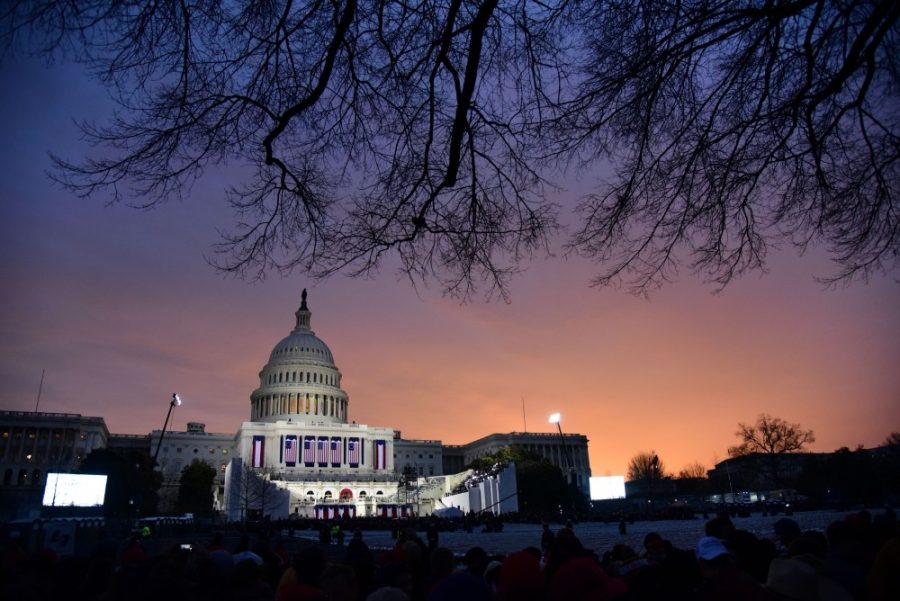Following the 2016 election, the Republican Party gained majority control of the 115th Congress as well as put a president in the White House, providing a prime opportunity to advance their own agenda, like then-President Barack Obama and his cabinet did in 2008.
In addition to the amalgamation of issues facing Congress including health care and tax policy, Congress must make critical decisions regarding higher education.
So far, President Donald Trump has signed two Congressional bills into law which retract Obama-era regulations on teacher preparation standards and state educational accountability requirements.
“The Bush era had No Child Left Behind, the Obama era had Race to the Top, but I don’t know what the Trump administration will create just yet,” said Kevin Henry, Assistant Professor within UA’s Educational Policy Studies and Practice Department.
Privatizing K-12 Education
Although, based on Trump’s campaign rhetoric and outspoken congressional support, Henry believes an expansion of school voucher programs at the K-12 level will occur alongside a move toward privatized education.
As a concept, the voucher system does not have an inherently negative impact on higher education. In reality, however, it could drastically affect the number and kinds of students enrolling at UA.
“With the voucher system, you are giving special preferential treatment to certain individuals because private tuition costs are often higher than the tax refund [voucher],” said Bruce Johnson, head of UA’s Teaching, Learning and Sociocultural Studies Department.
Historically, low-income students — especially those of color — have attended under-resourced and underfunded schools. The voucher system will continue to underserve these communities, Henry said.
Affirmative action is also a likely target of the Republican Congress, members of which generally do not agree with anything that can be construed as giving preferential treatment, Johnson said.
“We will see a division in education, a gap that will widen in terms of educational achievement, attainment and access during this administration,” Henry said.
As a result of Congressional policy on K-12 education, diversity may decrease on UA’s campus as low-income, minority, and immigrant students are not able or become too discouraged to attend university.
“In reality, if you don’t give special treatment to those who have not been given opportunity, you give preferential treatment to those who have,” Johnson said.
Federal Grants and Loans
In addition to K-12 policy, decisions regarding Congressional funding will impact the kinds of students attending the UA as well as the experiences they obtain.
“Federal funding for higher education is typically in the form of grants to students and student support,” said Jo Holt, chairwomen of the Pima Democrat Party and a former researcher at the UA.
Trump’s proposed budget makes sweeping cuts to the agencies which fund university research, and Henry believes Congress’ most significant impact on the UA will come through their modification and approval of government funding.
Federally funded research is an integral part of the work done at UA, and without federal funding, the scope of research on campus will diminish, Johnson said.
While the UA is actively seeking increased private and foundation research funding, the government is the only organization that has the capacity to fund the necessary basic research, according Holt.
Not only will research funding be impacted, but the budget will also determine new details regarding Pell Grants and federally subsidized loans for low-income students attempting to attend college.
Loan Debt and Deregulation
“We are really concerned about student finances because tuition and student loan debt is skyrocketing,” Johnson said. “There has been a growing concern and action against some of the private profit-making universities and how they were abusing the systems, students and federal aid.”
During the Obama administration, regulations were passed to protect students against predatory private colleges. Secretary of Education Betsy DeVos, has sought to reverse some of these regulations.
“One of my worries with this emphasis on deregulation is it will lead to abuses and students who are paying unbelievable amounts of money for degrees that are worthless,” Johnson said.
Due to Secretary DeVos’s role in issuing educational policy regulations, Henry believes Congress’ greatest impact in higher education coincided with their vote to approve her appointment.
Deregulations are not inherently bad though, he said.
“I think some of the things the federal government was doing under the Obama administration were going too far and were over-regulating; some pull back is actually good,” Johnson said referring to the federal implementation of Common Core.
In conjunction with deregulation, higher education is becoming increasingly privatized.
“Several decades ago, the prevailing mood in the country was public education, including university education, was a public good,” Johnson said.
In the face of a student loan crisis, Congressional Republicans are moving towards an attitude which characterizes education as a personal, not a societal, achievement. As a private good, if you cannot afford education, then you will not receive education, Henry said.
Not in a Vacuum
“When we talk about education policy we are not just talking about loans and curriculum, but also immigration policy and health care policy,” Henry said.
Both immigration and housing and development policy are deeply intertwined with education policy because of their impact on students.
Trump and Congress’ specific policy “will be a policy that lubricates market mechanism in education, which is to say privatize education,” Henry said.
With Congress’ policies of deregulation and privatization, the mandate of UA to educate Arizona students may become more and more of a challenge as Arizona students cannot afford to attend the UA and federal funding to the UA decreases.
Henry summed up the implications of the current Congress’ higher education policy debate by saying, “This is a question about access and diversity, about how we envision our future and who has a right to education.”
Follow Randall Eck on Twitter.









